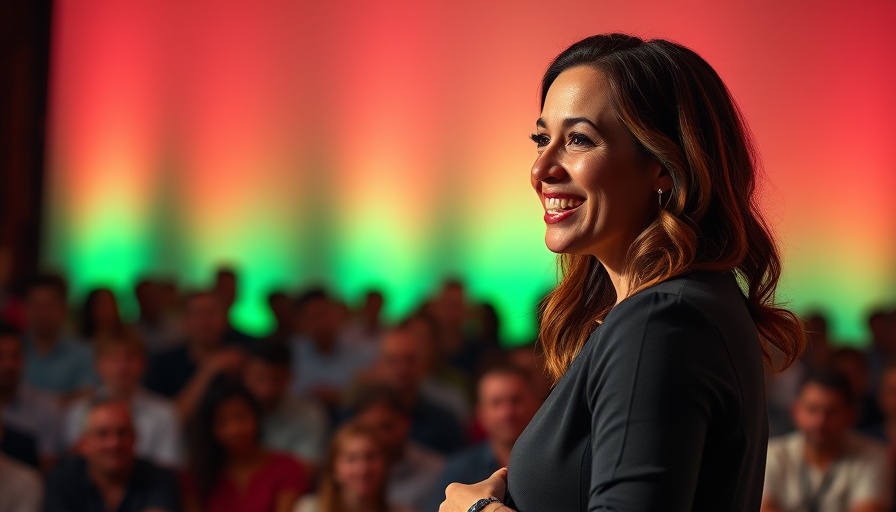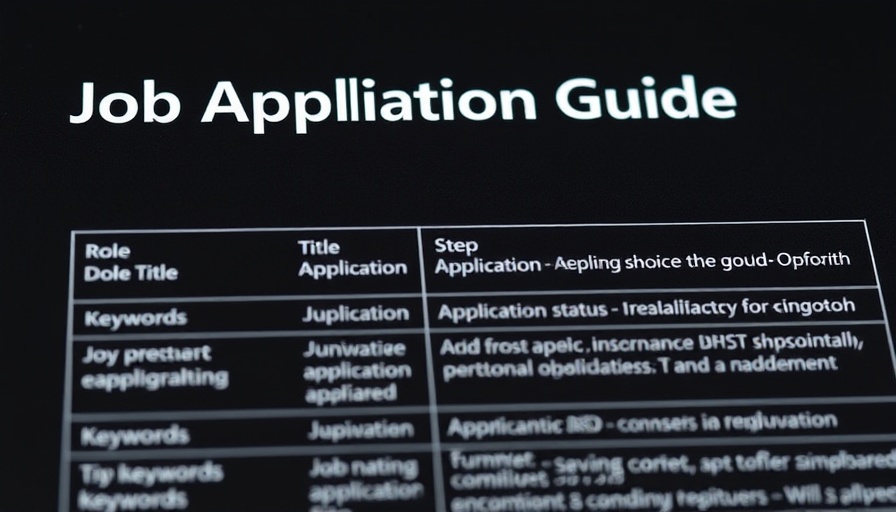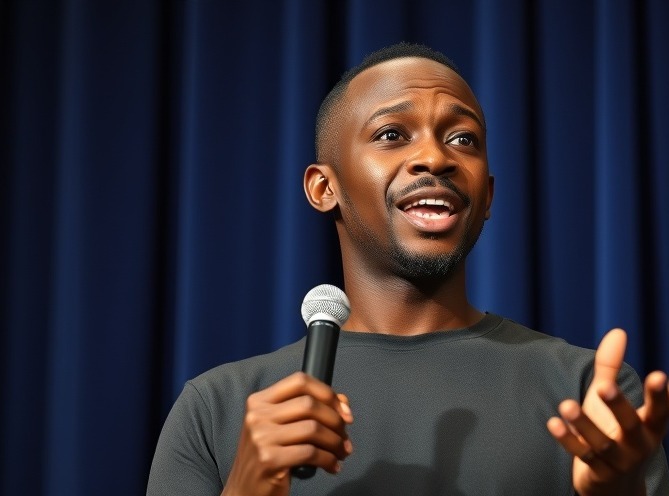
The Evolving Landscape of AI in the Creative Arts
In recent years, artificial intelligence (AI) has begun to transform various industries, including television and film. Jena Friedman’s engaging TED Talk, "The Jokes AI Won’t Tell," explores the implications of AI in creative fields, particularly focusing on how it affects writers and comedians. While many fear that AI threatens jobs in these industries, Friedman introduces humor to highlight both the absurdity and the potential outcomes of this technological evolution.
In 'The Jokes AI Won’t Tell,' Jena Friedman dives into the impact of artificial intelligence on comedy, sparking a deeper analysis of authenticity and creativity in our evolving world.
Unexpected Risks and Realities of AI
Friedman's insights raise critical questions about the future of creativity when machines can generate content. One of the most compelling aspects of her talk is the juxtaposition of traditional comedy with the rise of AI-generated humor. She quips that while robots may revolutionize comedy, they also raise alarming concerns about privacy, consent, and the authenticity of human expression. This dichotomy forces us to consider: as machines become more proficient, what unique human elements will be lost in the process?
Why Humor Matters in AI Discussions
Using humor, Friedman effectively addresses serious topics, demonstrating how laughter can serve as a coping mechanism in uncertain times. Her jokes about the overhyped fears of male friends toward AI juxtapose real concerns on gender and safety in technology, presenting a broader commentary on societal norms. This blending of comedy and critique encourages audiences to examine their own fears while engaging with the vital conversation around AI's role in our lives.
The Future of Comedy: Robots or Humans?
As she humorously predicts a future where a robot comedian could replace her, Friedman emphasizes a vital truth: even if machines mimic human interaction, the depth of emotional and cultural understanding may never be fully replicated. The challenge lies in fostering creativity and human connection amidst the rise of AI. While robots may be able to deliver jokes, can they encapsulate the rich tapestry of human experience, especially regarding sensitive topics like abortion, which Friedman adeptly navigates in her routine?
Embracing the Uncomfortable: Honoring Human Stories
Friedman asserts that our quirks, our “abortion jokes” if you will, are crucial in distinguishing us from machines. These unique aspects of humanity encompass our fears, our vulnerabilities, and our truths. As AI continues to evolve, focusing on these elements can guide us in maintaining our authenticity and our connection to one another in a rapidly changing world.
Ultimately, Jena Friedman’s insights are not just about the potential for AI to disrupt creative industries; they serve as a call to action for individuals to embrace their stories and humor in a meaningful way. Understanding our collective identity amidst technological advancement empowers us to shape a future where human creativity thrives alongside AI innovation. While concerns about the automation of jobs loom large, fostering authenticity could be the best mode of resistance.
 Add Row
Add Row  Add
Add 




Write A Comment